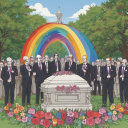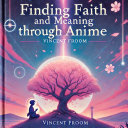Theology of Excess: Doom Spending, Consumption, and the End Times in Religious Thought
About this ebook
Why do people buy in times of crisis? As fears of climate change, pandemics, and financial collapse grow, so does a peculiar phenomenon: “doom spending.” Rooted in anxiety and apocalyptic beliefs, this drive for excess isn’t just a quirk of human behavior—it’s a window into our deepest theological and spiritual questions. Theology of Excess uncovers how religious ideas, particularly those tied to the end times, shape patterns of consumption, revealing a surprising relationship between eschatology and economics.
This book dives into scripture, church history, and modern religious movements to understand why believers often turn to material accumulation during times of uncertainty. It explores how teachings on wealth, stewardship, and the end times influence everything from doomsday prepping to stockpiling groceries, unpacking both ancient texts and contemporary practices.
Through engaging analysis and case studies, Theology of Excess offers a fresh perspective on consumer behavior, urging readers to reflect on how spiritual beliefs shape financial choices. This thought-provoking journey challenges not only how we understand consumption but also how faith can offer a different vision—one of hope, simplicity, and wise stewardship—in a world seemingly on the brink. Whether you’re a theologian, a spiritual seeker, or someone concerned about societal patterns of overconsumption, this book will inspire a new outlook on how faith and finance intersect in an age of fear.
Key Themes:
1. Materialism vs. Spiritual Security:
“Theology of Excess” explores the tension between material wealth and spiritual security, illustrating how overconsumption, especially during crises, is often driven by spiritual emptiness and fear.
2. Eschatology and Economic Behavior:
The book examines how beliefs about the end times and apocalyptic fears influence economic behaviors like doom spending, linking this to theological teachings about trust, providence, and redemption.
3. Consumerism and Capitalism in Theological Critique:
The book critiques the ways in which modern consumerism and capitalist culture encourage excess and financial recklessness, contrasting these with religious teachings on moderation, stewardship, and community.
4. Spiritual and Psychological Responses to Crisis:
By addressing the psychological dimensions of fear and uncertainty, the book ties in theological reflections on faith, trust in God, and the dangers of seeking comfort in material things
About the author
Author Description
Vincent Froom is a theologian, writer, and cultural analyst specializing in the intersection of faith, economics, and societal behavior. With a deep interest in how religious beliefs shape contemporary practices, their work explores theological reflections on materialism, consumerism, and crisis. Known for making complex theological ideas accessible, Vincent has written extensively on how spiritual teachings address issues of wealth, excess, and ethical stewardship. Their unique perspective combines scholarly insights with real-world applications, making them a sought-after voice in discussions on faith and financial ethics. This latest work, Theology of Excess, continues their mission to understand and challenge the ways consumption shapes both individual and communal expressions of faith.







